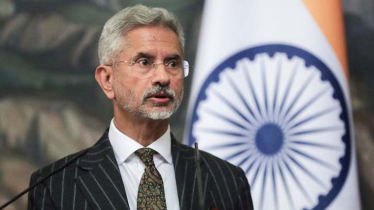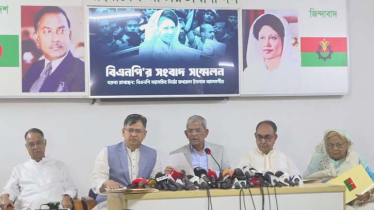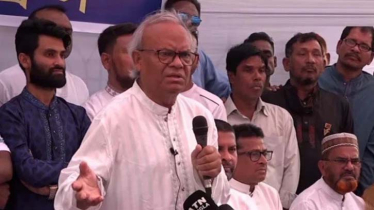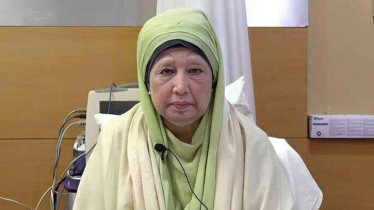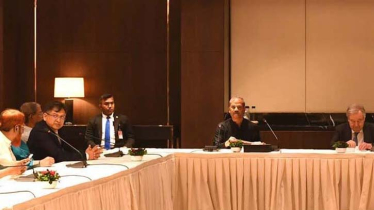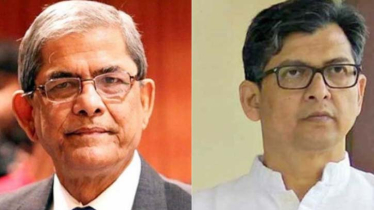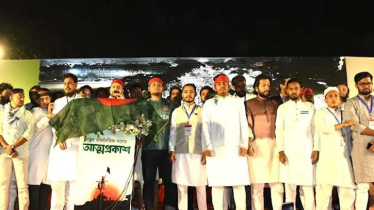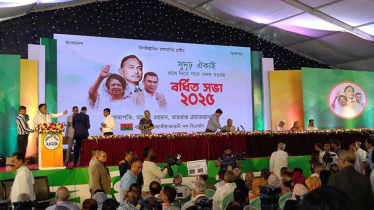
Photo: Collected
The BNP is in the process of identifying and taking action against leaders who failed to adhere to the party's movement directives and those who acted out of self-interest, particularly around the twelfth parliamentary elections. For over three months, Tarique Rahman has been implementing decisions based on a thorough analysis of a secret party survey. This has resulted in the removal of top leaders through press releases. While many within the party are upset, they remain silent out of fear. Some members, however, believe that Tarique Rahman's decisions are justified and necessary for the party's cohesion and effectiveness.
In fear of losing their positions, hundreds of leaders have begun seeking the support of the party's policymakers to secure their roles. Some leaders noted an increase in trips to London after observing actions taken against those who remained inactive during critical times. However, many hold hope that Tarique Rahman will not be swayed by financial incentives and will instead prioritise those who have proven their dedication and effectiveness in the movement. There is a belief that individuals who have actively participated and demonstrated resilience in the streets will be brought to the forefront. The party has faced numerous setbacks over the past 17 years due to ineffective leadership, and there is a strong sentiment that a change in leadership is necessary for future success.
Upon investigation, it has been revealed that a dozen committees, including those of Dhaka North-South, Chittagong, Barisal Mahanagar, and the Central Committee of Jubo Dal, have been dissolved in a single day due to their failure to meet party expectations. The process of forming new committees, excluding the ineffective leaders, is now underway. The announcement of the new central committee of Jubo Dal is expected very soon, along with the restructuring of other committees.
Many leaders believe that the party's top leadership is dissatisfied with the committees' inability to effectively drive the movement and strengthen the organisation. As a result, they have taken a punitive approach by dissolving these committees. The reformation will be formally communicated through a press release if not through a council meeting.
After speaking with various BNP leaders, it has been revealed that the party has conducted an in-depth analysis of the failures of the final movement following the January 7 elections. The movement's shortcomings have brought several organisations, including Dhaka city, under scrutiny. Notably, the Nationalist Chhatra Dal and the Jubo Dal, often regarded as the "Vanguard" of the movement, were heavily discussed due to their significant roles.
As a result of this analysis, on March 1, the BNP dissolved the Chhatra Dal committee and appointed a 7-member interim committee. This interim committee was later expanded into a partial full committee with 260 members, announced on June 15.
In a significant move, the BNP abolished nine committees in one night and reshuffled 45 important positions within the party. While party leaders view this reorganization as part of an ongoing process, political analysts attribute it primarily to the failure of leaders and the inaction of activists during the recent government fall movement. This shake-up is seen as a response to these shortcomings, with the expectation that those who failed will be more vigilant in the future.
High-level BNP leaders believe that this reshuffle will serve as both a corrective measure and a source of inspiration for the next wave of movement and programs. By evaluating and promoting deserving members, the party aims to strengthen its organizational effectiveness and enhance its chances of success in future initiatives.
According to sources, the city committees of BNP and its allied organisations faced severe internal criticism following the unsuccessful sit-in program at the entrance of Dhaka on July 29, which was part of the ongoing anti-government movement. During a meeting with the leaders of the affiliated organisations, the party's acting chairman expressed his frustration and anger over the failure of the program.
Shortly thereafter, Kazi Rawonkul Islam Shravan was removed from his position as Chhatra Dal president, officially citing "ill health" as the reason. This decision caused considerable upheaval within the party.
Subsequently, the role of these leaders was also criticised in the incident where the grand rally called in Nayapaltan, Dhaka on October 28 was disrupted. Consequently, the BNP took actions against those leaders and committees who were inactive in the movement and absent from the program, underscoring the party's commitment to revitalising its leadership and ensuring greater participation and effectiveness in future initiatives.
Talking to the concerned individuals, it is evident that before the 12th National Assembly elections, BNP has carried out a series of programs as part of the movement to bring down the government. While these programs were successful outside Dhaka, the leaders in Dhaka failed to make an impact. Notably, a secret survey was conducted within the party from July 29 last year. A trusted leader, who preferred to remain anonymous, revealed that at least a dozen people closely monitor all the activities of the party, besides being associated with the party itself. They relay every message to Tariq Rahman in real-time.
Those who have diligently executed Tariq Rahman's orders and those who have remained inactive in their roles are both under the scrutiny of the Acting Chairman's team. Based on this information, many are being removed from their positions while others are being promoted. Over the past three months, a thorough combing operation has been conducted to identify those who have underperformed. A complete list of such individuals has been compiled, leading to the current restructuring of the party's leadership.
When asked about the sudden removal of top leaders, the party's Secretary General Mirza Fakhrul Islam Alamgir stated that the committee was not abolished suddenly. He explained that it is an ongoing process within the party. Committees are periodically formed and dissolved as part of the regular organisational activities, which he described as a very normal political process.
Ruhul Kabir Rizvi, Senior Joint Secretary General of BNP, mentioned that some vacant positions have been filled and adjustments have been made in the party's executive committee. He added that the Acting Chairman of the party would be the one to decide whether there will be further changes in the future.
Messenger/Disha

